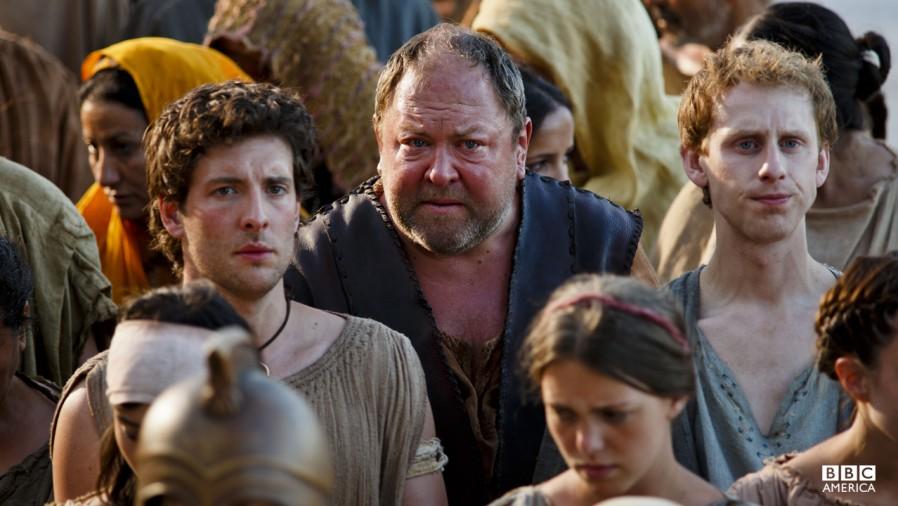“Atlantis” lacks potential
November 30, 2013
Following the release of the highly anticipated 50th anniversary episode of the wildly popular television show, “Doctor Who”, BBC America aired the pilot episode of its new fantasy series “Atlantis” on Nov.23.
Jason (Jack Donnelly) finds himself awash the sands of the “lost city,” after being drawn into an enigmatic white light during his search for his father. As a clumsy newcomer, who all too quickly turns into a well-coordinated action hero, Jason spends the first five minutes of his journey into the Atlantis marketplace knocking over fruit baskets while running from Atlantean guards and a badly-developed CGI double-headed lizard.
The show had a clunky script and seemed to be in a rush to introduce a slew of new characters. The question of who Jason really is, which happens to be the premise of the show, dissipates as soon as he visits the Oracle as it becomes all too easy to predict who his mother is, leaving room to ponder what is actually in store for the rest of the series.
Pasiphae (Sarah Parish) perfectly fit the “Evil Queen” role, but just like all the other hundred side characters wasn’t given a substantial number of lines in the script.
The only highlight was Pythagoras (Robert Emms), who played Jason’s faithful companion and the stereotypical nerd minus the much needed mathematical spiels plagued with technical jargon. Pythagoras hides Jason from the guards, along with Hercules (Mark Addy), who epitomizes everything the man of the myths is not, a cowardly overweight man who is desperate to go from zero to hero.
Despite the added comedic relief of both Pythagoras and Hercules, Donnelly’s character lacked emotion and brought a certain sense of seriousness to even light-hearted scenes.
Most of the episode was well-directed and the Minotaur lurking in the shadows during the latter half definitely had the intended effect, but the scenery was incongruous, distracting from most of the shots. “Atlantis” looked more like a Middle Eastern village straight out of “Aladdin” than an iconic Greek city.
And for die-hard Greek mythology fans, for which the show was probably intended, the reweaving of classic Greek tales served to be confusing. The island of Crete was replaced with Atlantis. The Minotaur is no longer the child of Pasiphae but instead a man cursed by Poseidon, who seemed to be the only existing Greek god in the city. And it was Theseus not Jason, who was supposed to have defeated the beast in the end.
The show seemed to be a failed attempt at crossing over the renowned Percy Jackson series and “Doctor Who.” It is easy to see “Atlantis” sinking beneath a sea of programmes that actually show some promise.






